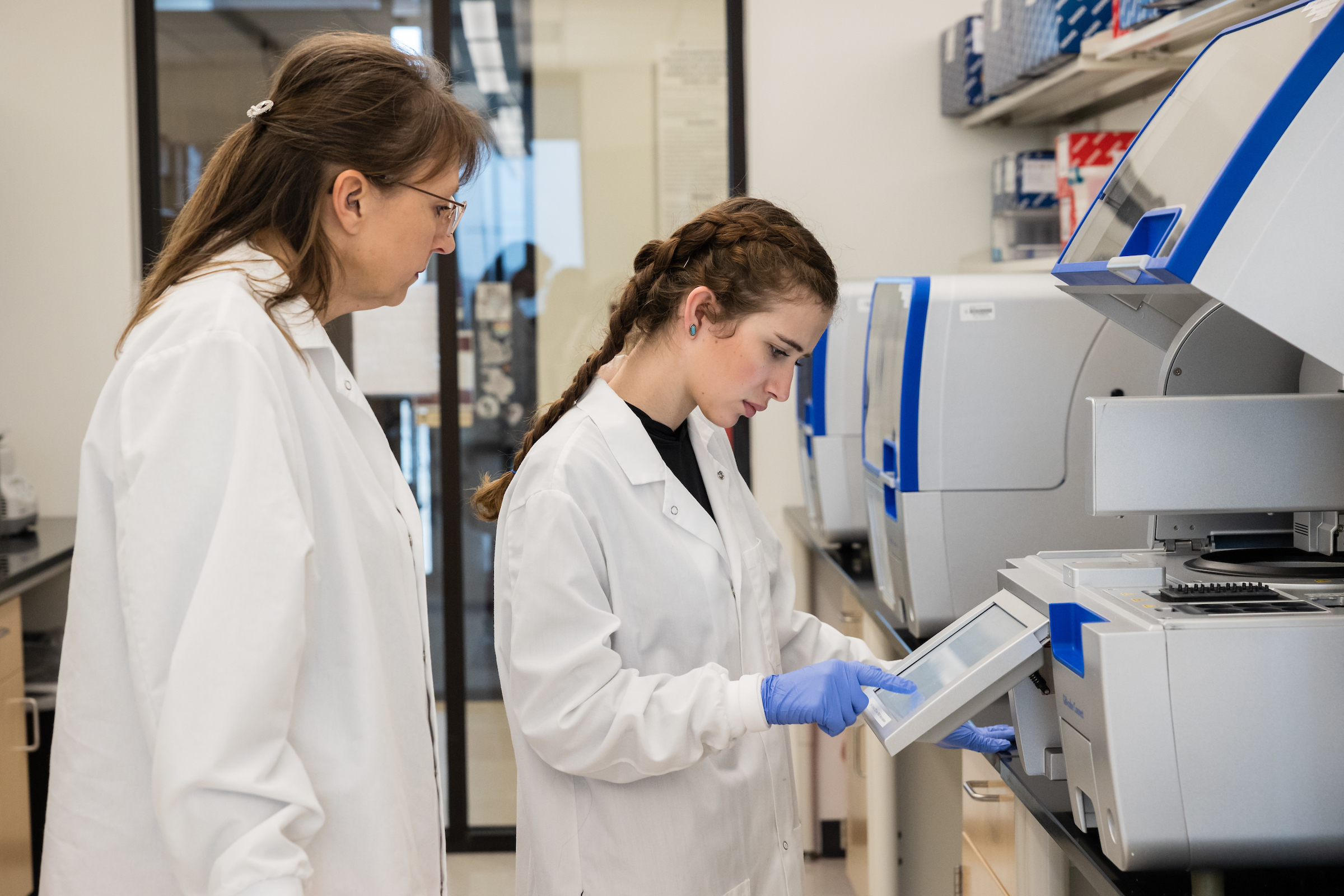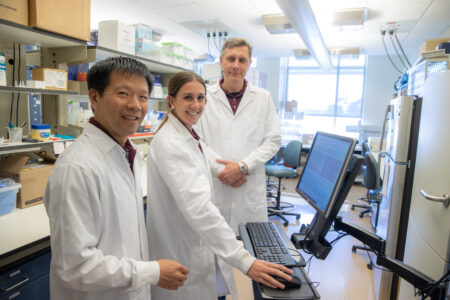Growing up in Catawba, North Carolina, Hudson McAllister found her passion for animal health through early involvement in Future Farmers of America and agricultural science lessons in high school. After spending time working with the local cattlemen’s association and showing beef cattle, she decided to pursue degrees in both agricultural science and animal science. As a graduate student, her interests in animal health and vaccines took shape.

Hudson McAllister, source: Texas A&M University
Hence, she decided to join Texas A&M University’s College of Veterinary Medicine & Biomedical Sciences (VMBS). Apart from being ranked 4th best in the US and 7th best globally (QS Rankings), the college is known for its focus on animal and human health through transformational education, research, innovation, patient care, and public service. Fuelling its mission are engaging programs that ensure students are well-equipped to become purpose-driven, career-ready biomedical scientists.
One example is the Biomedical Sciences (BIMS) graduate program, which offers two research-centered pathways: the MS-thesis and the PhD. Both routes are ideal stepping stones to careers in industry, academia, and government. Given her academic background, McAllister went for the PhD. “The BIMS graduate program stood out to me because of the ability to be close to veterinary medicine while still gaining the knowledge of a PhD,” she says.
Indeed, an integral part of this program is its intensive, impactful research. Both graduate degree programs allow students to earn their degree by engaging in research projects on some of the most pressing issues affecting animal, human, and environmental health. Each project is led by professors with diverse perspectives, extensive training and rich experiences.
These faculty can be found on two separate yet equally impactful campuses. The BIMS graduate program unlocks access to VMBS’s state-of-the-art laboratories in both College Station and at the VERO (Veterinary Education, Research, & Outreach) satellite campus, housed at West Texas A&M University in Canyon, Texas.
The VERO program brings veterinary education, research, and outreach to the Texas Panhandle. The idea was to bring education and research into immediate proximity with stakeholders in agricultural animal production. Since both BIMS graduate and veterinary professional degree programs are offered here, students and faculty are truly making an impact. For example, they’re leading efforts to combat antimicrobial resistance in veterinary medicine and addressing respiratory disease in beef cattle.
“My experience at VERO has been fantastic,” says McAllister. “The ability to be close to the cattle industry here in Canyon has been very beneficial for my education. Through conducting my research on a research feedlot and working with industry professionals, I have developed my knowledge of practical strategies used in the cattle industry.”

Dr. H. Morgan Scott, source: Texas A&M University
Meanwhile at the College Station campus, Dr. H. Morgan Scott, Dr. Sara Lawhon, Dr. Keri Norman, and Dr. Gizem Levent – are leading the One Health charge studying basic and applied microbiology and epidemiology at the interface of humans, production animals, and the environment. The College Station researchers collaborate closely with VERO faculty and trainees.
“Dr. Morgan Scott continuously pushed me to reach my full potential. Like physical growth, there were occasional growing pains. Still, I am a much stronger scientist and leader because of his mentorship,” says Dr. Ethan A. Taylor, who received his PhD in Biomedical Sciences at the VMBS and is now working in clinical trial management.
“If there was a technique in which I was interested, there was a good chance someone in the program had experience in that technique and could show me. It increased collaboration opportunities and provided external viewpoints for both of my research, but also allowed me to provide my perspective to others too.”
“Our research is very complimentary,” says Associate Professor Dr. Keri Norman. “VERO has a large focus on conducting molecular work on the microbiome and resistome, whereas I focus more on particular bacterial pathogens such as Salmonella. We can use the same samples to look at both the microbial ecology and the individual bacteria to get a more complete picture of what is going on in the cattle populations. I collaborated with VERO faculty on several grant proposals in 2024 and will continue working with VERO faculty in the future.” This integrated, collaborative research experience provides trainees with a robust research and educational experience. After all, collaboration is at the heart of Texas A&M’s Biomedical Science graduate program.
Follow the Texas A&M College of Veterinary Medicine & Biomedical Sciences on Facebook, Instagram, X, YouTube, and LinkedIn.











